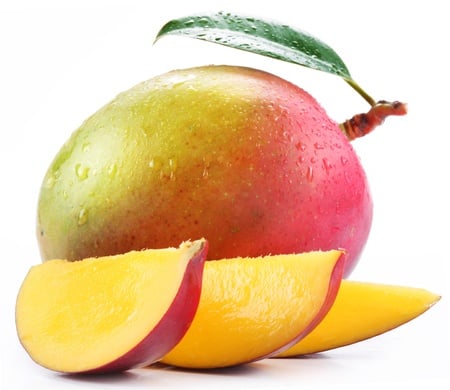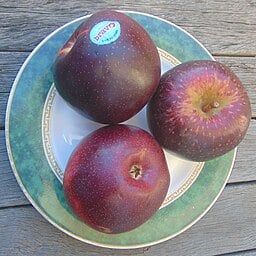The largest and most ambitious trade initiative in Australian horticulture has been given the green light with a host of partners signing on to an historic $130 million program, the Fresh and Secure Trade Alliance (FASTA).
Delivered through the federal horticulture Research and Development Corporation, Hort Innovation, and led by the Queensland Department of Agriculture and Fisheries, the eight-year program will see key Aussie export stakeholders and officials joining forces to help protect and grow Australia’s horticultural exports.
As part of the program, FASTA will also boost biosecurity initiatives to solidify Australia’s strong reputation in pest-management and as a responsible trading partner for years to come.
Insect pests are a major challenge for Australia’s horticultural producers as they impact production and domestic and international trade. Australia’s trading partners require evidence that Australian horticulture exports are insect pest free.
FASTA’s research program is focused on two areas:
- Delivering robust and timely datasets to underpin market access negotiations: State and Territory governments will work together to standardise their approach to collecting phytosanitary, or pest and disease management, data. This data demonstrates that Australia’s produce is pest-free while also ensuring the impact of phytosanitary treatments on fruit quality will be minimised. These datasets will be used to open new export markets for Australian produce and improve access to existing ones.
- Increasing understanding about fruit fly and other key pests: A multi-discipline, multi-organisational research team of over 70 scientists from across Australia will test new technologies for tracking pests, trapping pests and reducing pest pressure. The eight-year program will increase Australia’s research capabilities in pest management research and facilitate world-class research.
Federal Minister for Agriculture, Fisheries and Forestry Murray Watt said the research will be able to be used by Australia’s Department of Agriculture, Fisheries and Forestry in international trade negotiations or by states and territories in supporting domestic trade.
“This initiative will reduce the impact of endemic pests on sustainable horticulture crop production, improve Australia’s preparedness for future exotic pest incursions and facilitate a national, industry-driven and coordinated approach to research activity supporting horticultural market access and improvements,” Minister Watt said.
“Many of Australia’s biggest trading partners are passionate about pest-management, and this project will help Australia open and maintain these markets and the billions of dollars in annual trade they represent to our horticulture industry.”
Hort Innovation chief executive officer Brett Fifield said export growth has never been more important for the $16B horticulture sector, with most industries identifying enhancing and diversifying export markets as a priority.
“The Australian horticulture sector is projected to surge by up to 22.5 per cent in value by 2030, primarily due to increased exports in trade-focused commodities,” he said. “Through streamlined evidence-based data collection for the Australian Government’s trade negotiations and strengthened biosecurity measures, FASTA will support this growth.”
Queensland Minister for Agricultural Industry Development and Fisheries and Minister for Rural Communities Mark Furner said FASTA will ensure Australia’s reputation for high-quality horticultural produce is protected and enhanced.
“The Australian horticulture sector is known for delivering high-quality and safe produce,” he said.
“Through the delivery of state-of-the-art research and development, FASTA will bolster the nation’s pest management capacity to safeguard the Australian horticulture industry now, and into the future.”
Horticulture export facts and figures from the latest Australian Horticulture Statistics Handbook:
- The total value of horticulture exports grew by 2.4 per cent from Dec 2021 to Dec 2022.
- In 2022, fruit accounted for $1.2B of export value, followed by nuts with $1.1B and vegetables at $262M.
- In 2022, Australia’s top three export commodities were almonds (30 per cent share), table grapes (18 per cent) and citrus (18 per cent).
- Australia’s top export destination is China (28.4 per cent) followed by Japan (7.4 per cent) and Vietnam (6.6 per cent).
- Australia’s top 10 export markets have changed over the past few years – in particular, over the past six years exports to Vietnam have increased by 266 per cent.
- Victoria accounts for the largest share of export value – 49 per cent of total export value.
The Fresh and Secure Trade Alliance is a partnership between Hort Innovation, the Department of Agriculture and Fisheries Queensland, the Department of Primary Industries and Regional Development (WA); the Queensland University of Technology, the Department of Energy, Environment and Climate Action (VIC), the Western Sydney University, the Department of Tourism, Industry and Trade (NT), the Australian Blueberry Growers’ Association, James Cook University, the Department of Primary Industries and Regions (SA) and GreenSkin Avocados, with levy funding from the avocado and strawberry industries, and support from the Albanese Government.
Source:
The largest and most ambitious trade initiative in Australian horticulture has been given the green light with a host of partners signing on to an historic $130 million program, the Fresh and Secure Trade Alliance (FASTA).
Delivered through the federal horticulture Research and Development Corporation, Hort Innovation, and led by the Queensland Department of Agriculture and Fisheries, the eight-year program will see key Aussie export stakeholders and officials joining forces to help protect and grow Australia’s horticultural exports.
As part of the program, FASTA will also boost biosecurity initiatives to solidify Australia’s strong reputation in pest-management and as a responsible trading partner for years to come.
Insect pests are a major challenge for Australia’s horticultural producers as they impact production and domestic and international trade. Australia’s trading partners require evidence that Australian horticulture exports are insect pest free.
FASTA’s research program is focused on two areas:
- Delivering robust and timely datasets to underpin market access negotiations: State and Territory governments will work together to standardise their approach to collecting phytosanitary, or pest and disease management, data. This data demonstrates that Australia’s produce is pest-free while also ensuring the impact of phytosanitary treatments on fruit quality will be minimised. These datasets will be used to open new export markets for Australian produce and improve access to existing ones.
- Increasing understanding about fruit fly and other key pests: A multi-discipline, multi-organisational research team of over 70 scientists from across Australia will test new technologies for tracking pests, trapping pests and reducing pest pressure. The eight-year program will increase Australia’s research capabilities in pest management research and facilitate world-class research.
Federal Minister for Agriculture, Fisheries and Forestry Murray Watt said the research will be able to be used by Australia’s Department of Agriculture, Fisheries and Forestry in international trade negotiations or by states and territories in supporting domestic trade.
“This initiative will reduce the impact of endemic pests on sustainable horticulture crop production, improve Australia’s preparedness for future exotic pest incursions and facilitate a national, industry-driven and coordinated approach to research activity supporting horticultural market access and improvements,” Minister Watt said.
“Many of Australia’s biggest trading partners are passionate about pest-management, and this project will help Australia open and maintain these markets and the billions of dollars in annual trade they represent to our horticulture industry.”
Hort Innovation chief executive officer Brett Fifield said export growth has never been more important for the $16B horticulture sector, with most industries identifying enhancing and diversifying export markets as a priority.
“The Australian horticulture sector is projected to surge by up to 22.5 per cent in value by 2030, primarily due to increased exports in trade-focused commodities,” he said. “Through streamlined evidence-based data collection for the Australian Government’s trade negotiations and strengthened biosecurity measures, FASTA will support this growth.”
Queensland Minister for Agricultural Industry Development and Fisheries and Minister for Rural Communities Mark Furner said FASTA will ensure Australia’s reputation for high-quality horticultural produce is protected and enhanced.
“The Australian horticulture sector is known for delivering high-quality and safe produce,” he said.
“Through the delivery of state-of-the-art research and development, FASTA will bolster the nation’s pest management capacity to safeguard the Australian horticulture industry now, and into the future.”
Horticulture export facts and figures from the latest Australian Horticulture Statistics Handbook:
- The total value of horticulture exports grew by 2.4 per cent from Dec 2021 to Dec 2022.
- In 2022, fruit accounted for $1.2B of export value, followed by nuts with $1.1B and vegetables at $262M.
- In 2022, Australia’s top three export commodities were almonds (30 per cent share), table grapes (18 per cent) and citrus (18 per cent).
- Australia’s top export destination is China (28.4 per cent) followed by Japan (7.4 per cent) and Vietnam (6.6 per cent).
- Australia’s top 10 export markets have changed over the past few years – in particular, over the past six years exports to Vietnam have increased by 266 per cent.
- Victoria accounts for the largest share of export value – 49 per cent of total export value.
The Fresh and Secure Trade Alliance is a partnership between Hort Innovation, the Department of Agriculture and Fisheries Queensland, the Department of Primary Industries and Regional Development (WA); the Queensland University of Technology, the Department of Energy, Environment and Climate Action (VIC), the Western Sydney University, the Department of Tourism, Industry and Trade (NT), the Australian Blueberry Growers’ Association, James Cook University, the Department of Primary Industries and Regions (SA) and GreenSkin Avocados, with levy funding from the avocado and strawberry industries, and support from the Albanese Government.
Related News & Updates
Become a Member
Join AHT
We’re the peak industry body for Australian Horticulture Trade. Joining AHT helps us advocate for you & the greater good of the industry.
Benefits OF joining
- Representing you, monitoring developments and potential threats to imports & exports
- We work on your behalf on solutions & opportunities to facilitate and maintain trade
- Be kept up to date with important issues affecting horticultural imports & exports



